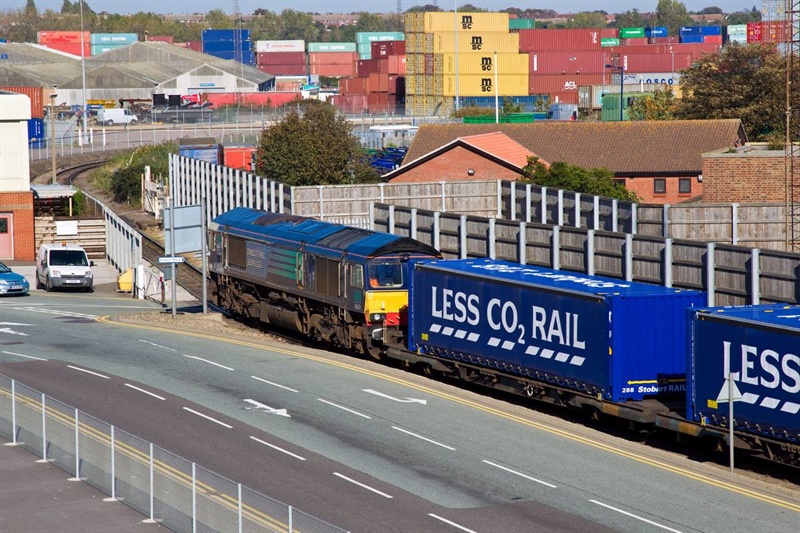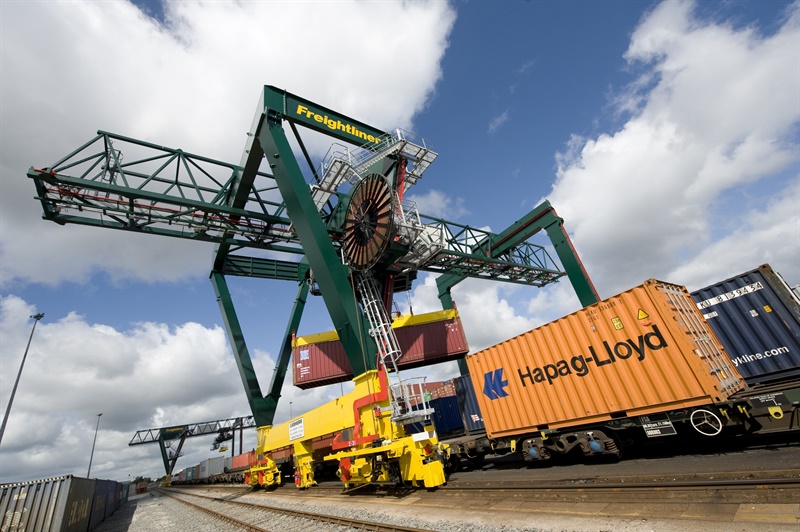01.05.14
Increasing rail freight’s modal share
Source: Rail Technology Magazine Apr/May 2014
Philippa Edmunds, manager of Freight on Rail, explains the growth of rail freight in the UK and how this can be further boosted.
Rail freight is vital to the UK economy. As the transport minister Baroness Kramer said: “The rail freight sector is the industry which moves industry.”
Rail freight’s environmental and safety credentials are also key to society, as it provides low-carbon bulk and unitised safe freight distribution, which reduces road congestion, estimated by the FTA to cost £24bn per annum.
In fact, rail freight contributes £870m to the nation’s economy (Network Rail ‘Value of Freight’, July 2013). Data from the Office for National Statistics suggest that the rail freight industry is supporting an economic output of six times its direct turnover.
In the last decade, overall rail freight grew by 19%, with domestic intermodal traffic growing by 86%. Network Rail estimates that traffic will increase by 2.9% per annum between 2012 and 2045, compared to actual increases of 2.5% per annum since the mid-1990s. The key projected expansion will be in consumer freight, which is expected to quadruple by 2030, with domestic intermodal traffic – largely for the supermarkets – expected to increase tenfold.
The main supermarket chains all have carbon reduction targets and recognise the value of long-distance rail services as part of their supply chains. Asda has been using rail since 2001 and now forwards retail goods on a daily basis, which connects the Asda National Distribution centre at Magna Park via Daventry to its RDC in Grangemouth – a distance of 550km. From Tesco’s Daventry NDC there are Scottish services six days a week to Mossend, with secondary rail distribution to Inverness as well as services from Daventry to both Wentloog in Wales and Barking/Tilbury.

Marks & Spencer and The Co-operative Food also use rail, with almost a quarter of the Co-op’s produce between Coventry and Scotland being transported by rail.
On the international side, there are new HS1 services through the Channel Tunnel from Spain to east London carrying refrigerated containers of perishable foodstuffs and automotive components, in addition to the twice weekly Polish services, which all benefit from the higher speed and capacity railway.
Over half of rail freight traffic is port-related, demonstrating the importance of the government support for upgrades to port links. Therefore, the government’s support for the Strategic Rail Freight vision to provide a robust and reliable network between the main conurbations and ports is crucial to UK industry.
Targeted rail freight upgrades are effective; rail’s market share out of Southampton port along the A34 corridor increased from 29% to 36% within a year of completion of the gauge upgrade, demonstrating the direct benefits of rail enhancements (Financial analysis: £70.7m project having a net present value of £376m). In March, the strategic cross-country rail route from Felixstowe port, parallel to the congested A14 and part of the Strategic Rail Freight Network development, was enhanced with the opening of the Ipswich Chord, which now allows 24 trains each day to avoid Ipswich station. This saves up to 75 minutes per rail trip on this cross country route and frees up capacity for passenger and freight services on the southbound route.
Once the next tranche of funded capacity upgrades are completed during this Network Rail control period, 40 million lorry miles will be removed from the A14 corridor and rail could increase its share of the traffic out of Felixstowe from around 28% to up to 40%. The CEO of HPUK told the Transport Select Committee hearing on Access to Ports in March 2013 that improved rail capacity was key to Felixstowe port and would improve the competitive position of the port relative to ports such as Rotterdam. London Gateway, the UK’s newest deep-sea container port, has opened with the expectation of over 30% of the containers moving through the port via rail.

Looking forward, rail freight needs more capacity on key routes, especially the West and East Coast Main Lines, so the allocation of significant released capacity from HS2 for freight is crucial. In addition to the planned work on the electric spine from Southampton to the West Midlands, electrification of other key routes – including into ports sidings and diversionary routes – would enable rail to be more efficient and even more sustainable.
A coherent and supportive planning framework for rail freight facilities and interchanges is key to realising modal shift. So it is crucial that the Strategic Rail Freight Interchange (SRFI) section in the draft National Networks National Policy Statement is strengthened to acknowledge that government policy to increase rail freight’s modal share will not be realised without a network of SRFIs, which are also important drivers of economic regeneration. The SRFI at Daventry already employs 5,000 staff, which will increase to around 9,000 when the new terminal comes on stream.
Longer term, rail freight needs the government to provide more capacity on key routes and a stable, affordable charging environment that encourages private sector investment if rail freight potential is realised in servicing the economy.
Freight on Rail is a partnership of the Campaign for Better Transport, DB Schenker, Freightliner, Direct Rail Services, Network Rail, ASLEF, RMT, TSSA and Rail Freight Group.

(Above: Philippa Edmunds, manager of Freight on Rail)
Tell us what you think – have your say below or email [email protected]